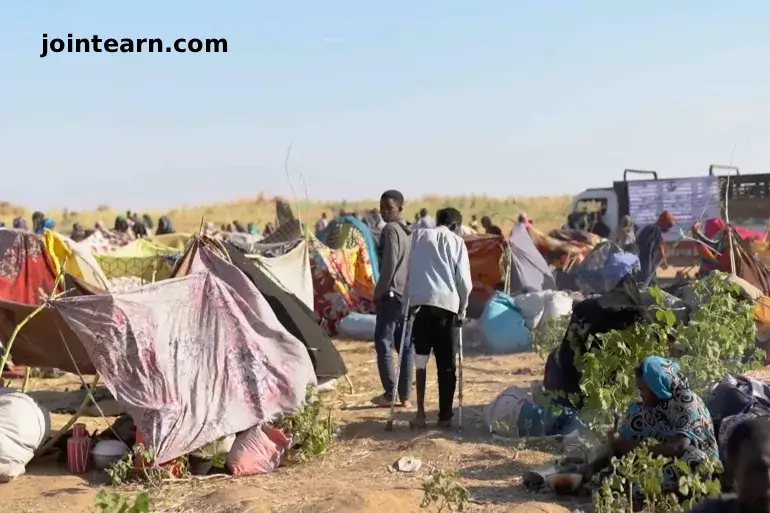
Sudan’s humanitarian catastrophe is reaching alarming new levels as the country’s brutal civil war rages on, particularly in the western region of Darfur. The recent takeover of el-Fasher, the capital of North Darfur, by the paramilitary Rapid Support Forces (RSF) has plunged hundreds of thousands more civilians into chaos and uncertainty.
As violence escalates and supply lines remain blocked, international aid organizations and foreign governments are urgently calling for increased humanitarian access to avoid an even greater tragedy.
El-Fasher Falls After 18-Month Siege: Fate of Civilians Unknown
El-Fasher was the last major city in Darfur not under RSF control, but it fell last week after being besieged for 18 months. The city had already endured a starvation campaign aimed at forcing out defenders and cutting off humanitarian aid. Now, with RSF forces in control, what’s unfolding is nothing short of a crisis within a crisis.
Tens of thousands of civilians who were trapped in the city remain unaccounted for, while thousands more who fled are reported missing. Those who managed to escape describe a chaotic scene filled with violence, fear, and despair.
Thousands Flee — But Many Still Trapped
Only a small portion of the displaced have reached the town of Tawila, about 50km (30 miles) from el-Fasher. According to Caroline Bouvard, Sudan Country Director for Solidarités International, only a few hundred people have trickled into Tawila despite the massive number believed to be fleeing violence in and around el-Fasher.
“There is a complete blackout in terms of information coming out of el-Fasher,” Bouvard told Al Jazeera. “We believe that up to 15,000 people are stuck in villages or along the roads, unable to reach safety due to RSF checkpoints and ongoing violence.”
Bouvard added that there are urgent calls for safe humanitarian corridors to evacuate civilians and provide vital aid — a request yet to be acknowledged by the warring factions.
Reports of Mass Killings, Torture, and Abuse
Terrifying stories are emerging from those who made it out alive. Survivors report witnessing mass executions, forced disappearances, torture, and sexual violence committed by RSF fighters. Civilians were held at gunpoint, forced to pay ransom, or killed on the spot if they could not comply.
Thousands of displaced people have ended up at the overcrowded al-Dabbah refugee camp in Sudan’s Northern State, where the humanitarian situation continues to deteriorate as more people arrive daily.
Reporting from al-Dabbah, Al Jazeera’s Hiba Morgan said basic necessities like food, clean drinking water, medicine, and shelter are desperately lacking, with many sleeping in makeshift shelters or in the open due to lack of space.
International Pressure Grows, but No Ceasefire in Sight
Despite diplomatic efforts by international mediators, including Saudi Arabia, the United States, the UAE, and Egypt, the Sudanese Armed Forces (SAF) and the RSF have shown little interest in negotiating peace.
The US State Department issued a statement condemning the RSF’s actions and warning that continued ethnic violence risks repeating past atrocities like the massacre of the Masalit community in El Geneina.
“There isn’t a viable military solution, and external military support only prolongs the conflict,” the statement said.
US lawmakers are also stepping up calls for stronger action. Senator Jim Risch, top Republican on the Senate Foreign Relations Committee, urged the Biden administration to officially designate the RSF as a “foreign terrorist organization”.
A Nation on the Brink: Millions Need Immediate Aid
Over 25 million people across Sudan are now in urgent need of humanitarian assistance — over half the country’s population. Since the civil war broke out in April 2023, the country has experienced mass displacement, famine, and the collapse of nearly all essential services.
Aid groups are appealing for global governments to take decisive action to open aid corridors and pressure both warring sides to halt the violence. Without immediate intervention, Sudan risks descending into one of the worst humanitarian disasters of the 21st century


Leave a Reply